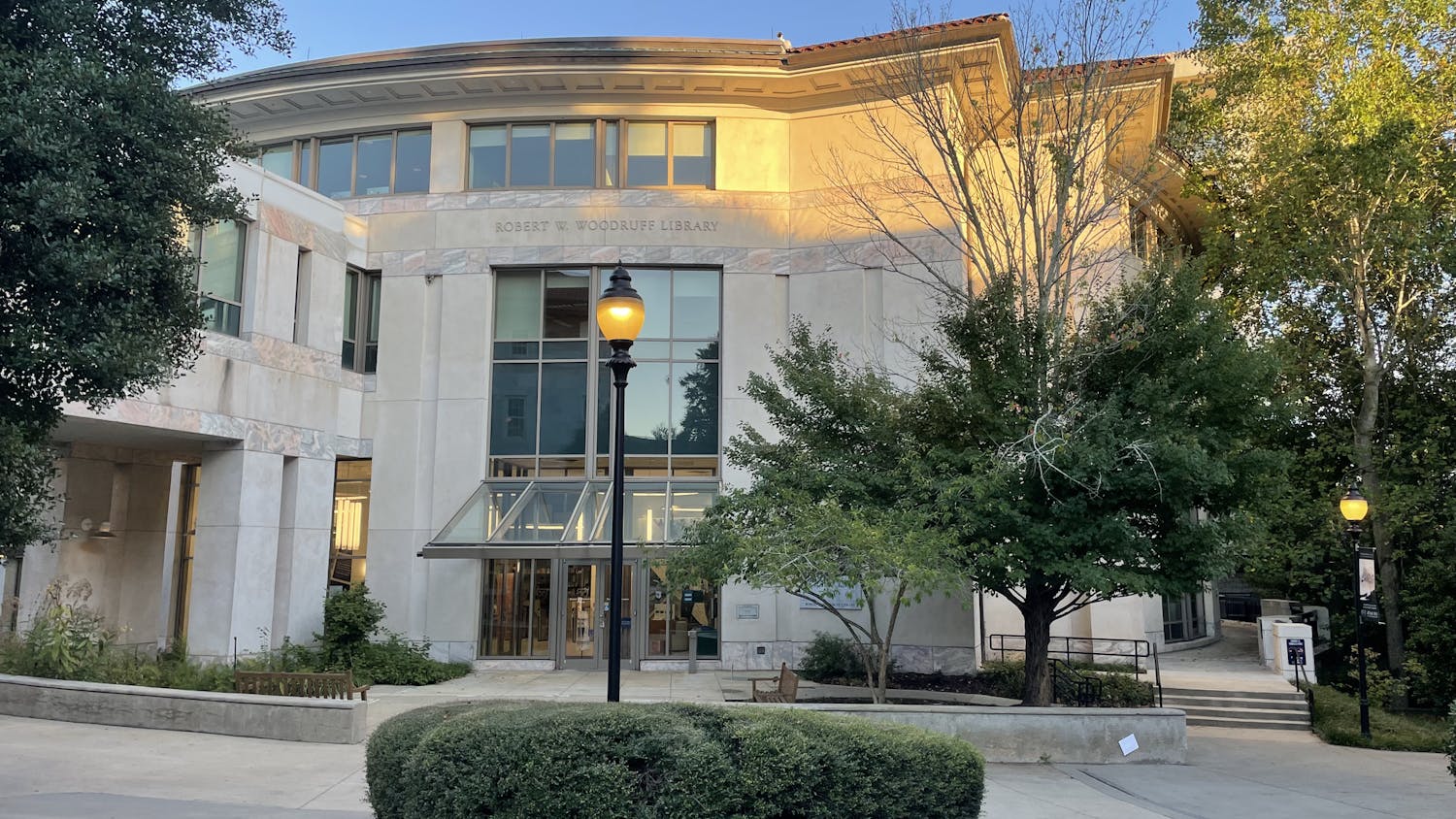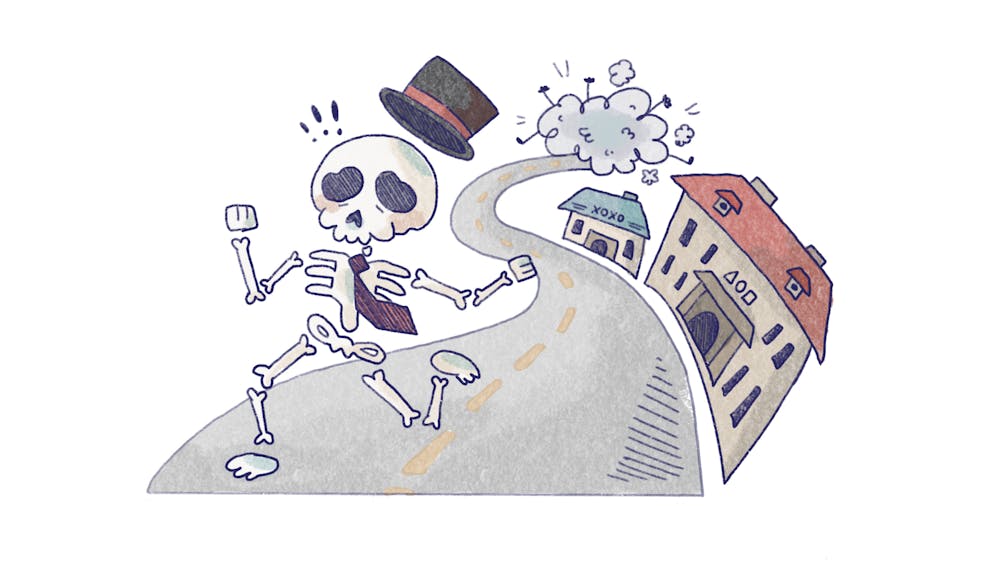Spring 2023 marks the third year that The Emory Wheel’s Diversity, Equity and Inclusion (DEI) task force sent out a demographic survey to better understand the Wheel’s inclusivity and diversify coverage. The survey included questions about the Wheel community’s background and work culture. Based on the results of the survey, the DEI task force will implement initiatives to address inequalities within the organization.
It is important to note that the DEI task force sent out two demographic surveys this semester because the first survey used flawed data collection methods. The data represented below was collected using the updated form.
Methodology
The survey was emailed to the 135 students who contributed to the Wheel within the past year. In total, 63 students responded, producing a 46.7% response rate, which is slightly higher than last year’s 41.2% response rate. All responses were anonymous. Contributors made up the largest portion of respondents at 34.9%, while editors followed at 19%.
Findings
This year, 56.5% of respondents identify as white, compared to 53% in 2022 and 51% in 2021. Like in previous years, the Wheel is disproportionately white. The second largest racial group is Asian at 37.1%. According to the Office of Planning and Administration, 32.7% of all undergraduate students enrolled in fall 2022 are white and 24.3% are Asian.
This year, only 3.2% of respondents identified as Black or African American when asked about their race. In 2021 and 2022, 3.5% and 5% respondents identified as Black or African American, respectively. According to the Office of Planning and Administration, about 8.5% of all undergraduate students enrolled at Emory in fall 2022 identify as Black or African American, meaning the Wheel is not representative of the student body.
This year, the survey made finer distinctions between different ethnicities in a question separate from race. The four largest ethnicities represented among the respondents are East Asian (19.7%), Western European (16.4%), South Asian (13.1%) and Eastern European (13.1%). However, Middle Eastern, North African, American Indian, Alaskan Native, Native Hawaiian and other Pacific Islander populations are severely underrepresented at the Wheel.
This year’s demographic survey included a question about Latinx identity as a distinct question, and 1.6% of respondents identified as Latinx.
A majority of respondents are cisgender women, with 78.7% identifying as such. This is an increase from 66.7% in 2022 and 61% in 2021. Additionally, 13.1% of respondents identified as cisgender men, which is a decrease from the 27% in 2022 and 34% in 2021. Slightly more respondents identify as nonbinary at 4.9%, compared to 4.5% in 2022 and 3.6% in 2021. No respondents identify as transgender. The Wheel, composed of mostly cisgender women and men, lacks representation of gender minorities.
A majority of the respondents are heterosexual, with 56.5% identifying as such. This is an increase from the 45% in 2022, but a decrease from the 62% in 2021. Additionally, 14.5% of the respondents identified as bisexual and 9.7% identified as queer.
Only 7.9% of respondents identify as a first-generation student, which was not mentioned in past demographic reports. According to the Office of Planning and Administration, 7% of undergraduates identify as first-generation students.
In total, 11.1% of respondents identify as low-income. According to the Office of Undergraduate Admission, 61% of undergraduates receive need-based financial aid, while only 22.2% of respondents indicate that they receive financial aid. This is a decrease from the 18% of respondents who identified as low-income in 2022.
In total, 84.1% of respondents identify as domestic students, while 14.3% identify as international students. This is an increase from the 9% of respondents in 2022. However, 16.5% of the Wheel identified as international in 2021. According to the Office of Planning and Administration, international students make up about 17.6% of enrolled students.
This year, 19.4% of respondents identify as disabled or are registered with the Department of Accessibility Services. The 2021 and 2022 demographic reports did not mention the number of respondents who identified as disabled.
Wheel culture
Although some respondents described the Wheel’s culture as “welcoming,” “positive” and “productive,” others noted that the culture is “stressful,” “rigid” and “cliquey.” Common feedback also included the need for more support, especially in terms of mental health, and more bonding across sections.
In terms of diversity in our coverage, some respondents said that the Wheel needs more “Black stories,” “anecdotal experiences of under-represented minorities” and perspectives from international students and Oxford College students. Another respondent said they wished the Wheel would “dig deeper into the stories of Indians, Koreans and the other various cultures on campus.”
DEI efforts
Since its conception in November 2021, the DEI task force has strived to make the Wheel a welcoming, inclusive and accessible environment with more diverse coverage.
This year, the task force’s efforts included hosting general body meetings and offering affinity journalism memberships to up to 10 students. Additionally, the task force created a guide to covering sensitive topics, to provide resources to readers who could benefit from extra support. The Wheel also continued to offer low-income editor stipends to mitigate the barriers low-income students face while working for our organization.
Additionally, in fall 2022, the task force led an organization-wide fundraising effort in conjunction with the Wheel’s annual magazine, the Hub. The task force raised money to go toward increasing financial assistance for low-income editors and networking opportunities, as well as providing educational workshops. While the Wheel raised about $2,000, the fundraiser did not net a profit after paying for the magazines and fundraising costs.
The task force will take the demographic survey results and feedback into account to facilitate change. Future initiatives include implementing a mentorship system to increase support and facilitate bonding between sections, connecting with affinity groups on campus to improve representation in our coverage and creating a broader recruitment system to diversify the Wheel community.
Members of the community are encouraged to reach out to EmoryWheelDEI@gmail.com to ask questions or share further feedback.
DEI Editor Emma Kingwell (26C) and Managing Editor Madi Olivier (25C) contributed to this report.







